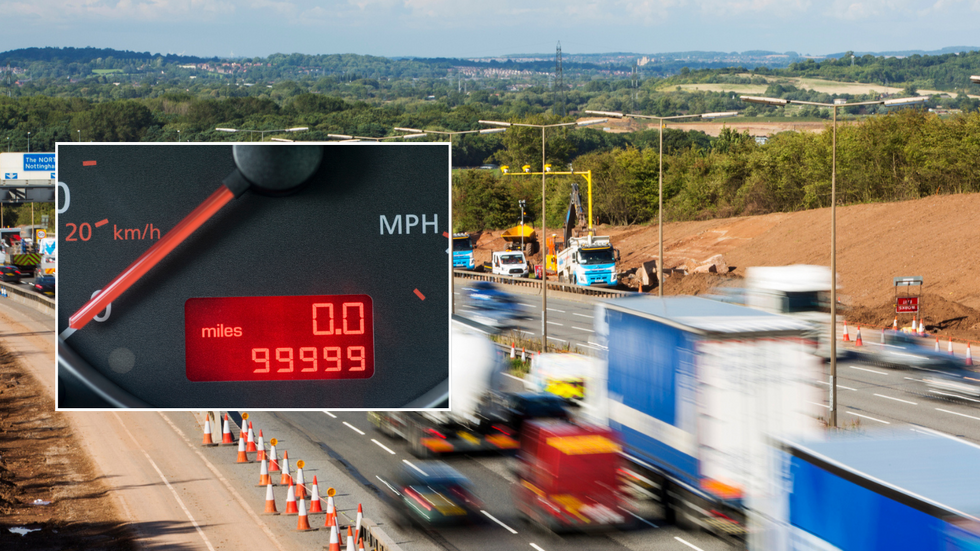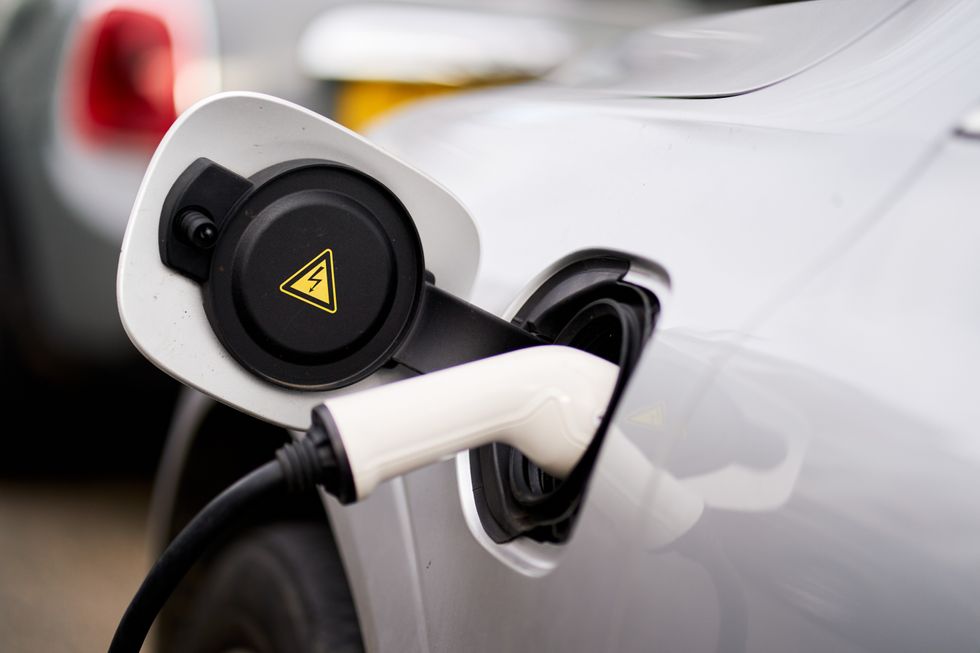Hemma Visavadia
Guest Reporter
Electric vehicles have been found to cover more miles annually than petrol and diesel cars, according to new research.
The figures revealed that by January 2025, the average EV had travelled 8,740 miles per year, exceeding petrol cars by 444 miles.
This marks a significant shift from a decade earlier, when electric vehicles were notably lagging behind petrol vehicles by 2,288 miles annually.
The data highlighted the transformation in British driving habits as electric technology continues to gain momentum across the nation due to the Zero Emission Vehicle mandate.
Do you have a story you'd like to share? Get in touch by emailing [email protected]

The mandate requires at least 28 per cent of new car sales to be electric by this year before increasing to 100 per cent in 2035.
This trend has been consistent for nearly two years, with EVs outpacing petrol vehicles every month since April 2023. At that time, electric vehicles were averaging 7,895 miles annually, already 358 miles more than petrol cars.
The gap has continued to widen as more drivers embrace electric cars. This sustained pattern suggests a fundamental shift in how different vehicle types are being utilised across the UK, with electric cars increasingly becoming the preferred choice for longer journeys.
Several factors are driving this electric revolution, according to Solera, with rapidly improving EV technology significantly reducing range anxiety among British motorists.
The growing accessibility of public and domestic charging points has further bolstered confidence in electric vehicles, the report detailed.
Another key factor found in the research was the vastly expanded choice of electric models available to consumers with more than 100 different models on offer.
The report noted how early EVs were primarily limited to smaller sizes, but today's market offers electric options across virtually all vehicle categories, particularly SUVs.
Meanwhile, petrol car mileage has been declining steadily over the past decade, falling 12 per cent in the last 10 years as more drivers favour an electric vehicle.
The pandemic accelerated this downward trend as remote working reduced the need for daily commutes, the report explained.
But due to improved public transport options across the UK and growing environmental awareness, they all contributed to significant shifts in travel habits.
Meanwhile, the rise of online shopping and digital services has further decreased the necessity for frequent car journeys.
Dylan Setterfield, Solera cap HPI's head of forecast strategy, said: "Our data reveals that people in the UK are driving increasingly fewer miles now than they were 10 years ago. It also shows that EV motorists now travel further in their cars than drivers of petrol cars and have been doing so consistently for almost two years."
LATEST DEVELOPMENTS:

He added that the data indicates "changes in driving habits are likely to be long-lasting, reflecting that people's day-to-day lives now involve less driving than they used to."
Setterfield added: "By generating average mileage data such as this for the whole of the UK, Solera cap hpi is helping motorists to get the full picture of how car use is changing in line with advancing technology, rising fuel costs, growing environmental awareness and how we have generally become less reliant on cars."
Find Out More...
The figures revealed that by January 2025, the average EV had travelled 8,740 miles per year, exceeding petrol cars by 444 miles.
This marks a significant shift from a decade earlier, when electric vehicles were notably lagging behind petrol vehicles by 2,288 miles annually.
The data highlighted the transformation in British driving habits as electric technology continues to gain momentum across the nation due to the Zero Emission Vehicle mandate.
Do you have a story you'd like to share? Get in touch by emailing [email protected]

The mandate requires at least 28 per cent of new car sales to be electric by this year before increasing to 100 per cent in 2035.
This trend has been consistent for nearly two years, with EVs outpacing petrol vehicles every month since April 2023. At that time, electric vehicles were averaging 7,895 miles annually, already 358 miles more than petrol cars.
The gap has continued to widen as more drivers embrace electric cars. This sustained pattern suggests a fundamental shift in how different vehicle types are being utilised across the UK, with electric cars increasingly becoming the preferred choice for longer journeys.
Several factors are driving this electric revolution, according to Solera, with rapidly improving EV technology significantly reducing range anxiety among British motorists.
The growing accessibility of public and domestic charging points has further bolstered confidence in electric vehicles, the report detailed.
Another key factor found in the research was the vastly expanded choice of electric models available to consumers with more than 100 different models on offer.
The report noted how early EVs were primarily limited to smaller sizes, but today's market offers electric options across virtually all vehicle categories, particularly SUVs.
Meanwhile, petrol car mileage has been declining steadily over the past decade, falling 12 per cent in the last 10 years as more drivers favour an electric vehicle.
The pandemic accelerated this downward trend as remote working reduced the need for daily commutes, the report explained.
But due to improved public transport options across the UK and growing environmental awareness, they all contributed to significant shifts in travel habits.
Meanwhile, the rise of online shopping and digital services has further decreased the necessity for frequent car journeys.
Dylan Setterfield, Solera cap HPI's head of forecast strategy, said: "Our data reveals that people in the UK are driving increasingly fewer miles now than they were 10 years ago. It also shows that EV motorists now travel further in their cars than drivers of petrol cars and have been doing so consistently for almost two years."
LATEST DEVELOPMENTS:
- Rachel Reeves fails to back drivers by cutting VAT charges which could see millions of drivers punished
- Victory for farmers as tax hike for red diesel rejected despite fears Labour would target industry
- Electric car sales dominate Europe with driver interest in petrol and diesel vehicles dying off

He added that the data indicates "changes in driving habits are likely to be long-lasting, reflecting that people's day-to-day lives now involve less driving than they used to."
Setterfield added: "By generating average mileage data such as this for the whole of the UK, Solera cap hpi is helping motorists to get the full picture of how car use is changing in line with advancing technology, rising fuel costs, growing environmental awareness and how we have generally become less reliant on cars."
Find Out More...
